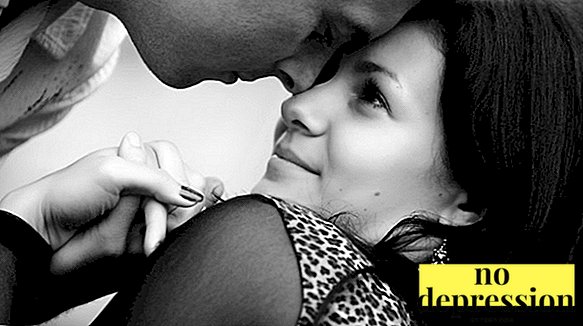Everyone has ever heard inner voicewho reprimanded or helped make the right decision.
Such a voice is called a conscience, but not everything is so simple with it. Let's figure it out.
Conscience - what is it?

Various researchers offer their interpretations of the definition of "conscience".
We give the most common of them. Conscience is:
- the ability to assess their own actions and exercise self-control when necessary;
- internal quality, which reflects an awareness of responsibility for the actions committed;
- an internal critic who ensures that a person lives honestly with respect to high values;
- the feeling of discomfort that appears when a person violates his own moral rules.
How to explain to the child what conscience is? A very important parenting process is laying parents of the basics of conscience to their child.
To do this, you need to talk about good and evil, to explain that actions are good or bad.
Desirable in a playful way to tellthat a person who does not commit bad deeds and does not lie, lives calmly, because he does everything according to his conscience.
If he did some kind of meanness, then he feels not well, feels guilty, cannot sleep normally at night.

This should be periodically reminded to the child, reinforcing various examples.
But, of course, the most important example for him are his parents. So parents need to show their actions that they need to live in harmony with their conscience.
What is it like?
Conscience is of three kinds:
- personal. It is a measure system that distinguishes between good and bad deeds;
- collective. Broader in scope than personal. It represents the interests of the inner circle and may conflict with a personal conscience;
- spiritual. If the first two types have some limitations on coverage, then they have no spiritual conscience.
This is the morality of man, which applies to everything.
Conscientious man - what is he?
Conscientiousness - a very valuable quality, which endowed with decent and reliable people. How can one characterize a conscientious person?
- He does not forget about the feelings and interests of others, focusing on them committing any actions.
- He always thinks how his behavior corresponds to his own values.
- He is aware of his actions.
- He acts honestly and does good deeds even when no one sees him.
- When committing any act thinks about whether it does not harm his actions to others.

Who are unscrupulous people?
Man without conscience - this is the one whom you would not want to meet in your life path. It seems to him that he is strong and cunning, he can achieve everything, and the opinion of other people is indifferent to him. He is ruthless and unprincipled.
But in fact, sooner or later, a person realizes how many bad things he has done, how many people he has deceived, and over whose heads he went for his own benefit.
Sometimes it comes too late when he is old and can't fix own mistakes. But feelings of shame and remorse cannot be avoided by anyone.
What to do if your conscience hurts?

Remorse - This is a common expression, which means that a person, because of his words or deeds, experiences strong discomfort, as if he is eating something, gnawing from the inside.
In fact, a person experiences feelings of guilt or shame, which are accompanied by the thoughts “it was not necessary to do that” or, for example, “I could have done everything differently”.
Gnawing conscience, conscience tortured: what to do?
Performing bad actions man sooner or later will begin to suffer torments of conscience. What to do if you feel such discomfort? How to deal with remorse?
- Do not try to drown out your inner voice: he will not shut up. It is best to listen to him, look at the situation from a different angle.
- Analyze your actions. Where did you make a mistake? How should act, so that the deed does not disagree with your values?
- Once you understand your mistake, it's about time atone. Perhaps it is not too late to correct the situation.
Emotion shame - concept and psychology
What is shame?
In psychology, shame is understood as an emotion that arises in a person as a result of the inconsistency of his behavior with the norms that are accepted by society, as well as the norms of morality accepted in it.
At the same time, the effect of shame on the person directly depends on the level of her feelings, perception. So, if the emotion of shame is not strongly expressed, then it can prevent some of its actions.

And on the contrary, if the feeling is strong, then it can push a person to some actions that he would not have done in a different situation, most often ill-considered.
Psychologists note that the emotion of shame itself is directly related to human moral values, his ideas about good and bad.
And when he goes over the edge and realizes that his actions or actions are on the bad side, then shame arises.
How to stop being ashamed of yourself?
How to cope with shame? Basically, there are two ways to deal with shame:
- Muffle this emotion in yourself. Immediately make a reservation that this method is a failure. But, as a rule, this is the first thing that comes to man’s mind. He tries to suppress unwanted emotions, push unpleasant thoughts, hide them deeply in the subconscious.
But in reality, the emotion of shame is so strong that it will not be possible to get rid of it.
As a result, a person will live under the yoke of negative emotions and sooner or later they will find a way out, and not in the most pleasant way (even mental disorders on this basis are possible).
- Letting emotions get out. In this case, you should try as often as possible to let the emotions of shame manifest themselves, to recreate life situations. For example, if you are ashamed to speak in public, then you need to challenge yourself and give lectures, conduct some events, etc. After some time you will realize that in these actions there is absolutely nothing shameful and the emotion of shame will recede.

In fact, both of these methods doubtful and based on the fact that you block the feeling of shame.
Yes, they can work, but most likely later shame will return. So what then to do?
- Start with yourself. Understand that in reality you are just ashamed of yourself. His words, actions, voice, body, actions. Only when you realize this simple truth can you move on.
- Accept your emotion. You are an ordinary person, just like everyone else. And you have the full right to experience emotions. All people are ashamed of something; there is absolutely nothing special about it.
- Become more confident. Your failure to accept your own emotions comes from the fact that you are not self-confident. You are afraid that someone will think about you wrong or you will look ridiculous. Work on yourself, develop a sense of confidence.
- Understand that no one is perfect. Neither you nor those around you. Your dissatisfaction with yourself, together with uncertainty, results in a feeling of shame for yourself.
Do not invent yourself a perfect image, because it is impossible to achieve it.
- Do not compare. All people are different, they have both positive features and negative ones. Therefore, it is foolish to think that you are ashamed of yourself, because you do not look like your friend or a famous person.
"Spanish"

Spanish shame is called the feeling of awkwardness that a person feels because of others.
That is, it is a shame not for their actions, but for the actions of other people.
And it does not have to be around, it may be strangers or even the characters of the film.
How to stop experiencing Spanish shame? In order to understand this, it is necessary to base on where does this feeling come from? Most likely, you mentally align yourself with the person for whom you are now ashamed.
Perhaps you could well be in his place or in a similar situation. Maybe you have similar external traits or character traits.
One way or another, in order to get rid of this unpleasant feeling, it is necessary to stop matching yourself with another person.
You need to understand that you are not responsible for his actionsYou can not do this. You can only be responsible for your own actions. Therefore, you cannot use a sense of shame for them.
The next time you experience Spanish shame, mentally speak to yourself, “I cannot take responsibility for other people. I am not doing anything now that I could be ashamed of. ” After that you will feel better.
"Narcissistic"

Under the narcissistic shame understand the emotion that a person feels with high self-esteem at the moment when feels a gap in its glory.
That is, simply put, he compares his own expectation (bloated self-opinion) and harsh reality (what kind of person he really is).
As soon as the narcissus has a sense of shame, it begins feel worthless, stupid, miserable. Such thoughts can completely absorb him and even bring him to depression.
How to overcome the narcissistic shame?
- It must be admitted that you are afraid to be yourself. You yourself have come up with some kind of image that could not match. And because of this, now suffer.
Understand that in this way you just run away from the real self. Understand that you do not need to live in fear of exposure.
Now it seems to you that you do not impersonate who you really are. And worry that at some point, others will reveal your secret.
- Stop pretending. Start listening to your own desires. Do not create some kind of image. Just live. Just be what you are. And believe, the surrounding will take you.
- Do not chase after far-fetched goals. It seems to you that you are not in line with your own ideas, because you have not achieved any goals that you set yourself why it was not clear for yourself. So you are climbing out of your skin to get at least a little closer to your image. And you are ashamed that you are not so. So stop torturing yourself.
Running teeth, ashamed to go to the dentist: what to do?

It so happens that a person has started his teeth so hard that now he is ashamed to go to the dentist with rotten teeth.
AND it turns out a vicious circle: he does not treat his teeth, their condition becomes even worse, but he experiences even greater discomfort at the thought of going to a specialist.
Firstly, it is important to clarify that a person is not ashamed of his teeth, but of just the fact that he has started so much care for them. That is, unpleasant emotions arise because of their irresponsibility.
The only thing that can be advised here is to break this cycle. Understand that it will get worse if you don’t go now. So do not be afraid, but make an appointment right now.
The job of dentists is to bring your oral cavity to a normal state. Believe me, he saw and not like that. therefore there is absolutely nothing to be ashamed of.
The feelings of conscience and shame are closely interrelated. But you can and should work on them.
How to overcome the feeling of shame? Psychologist tips:



